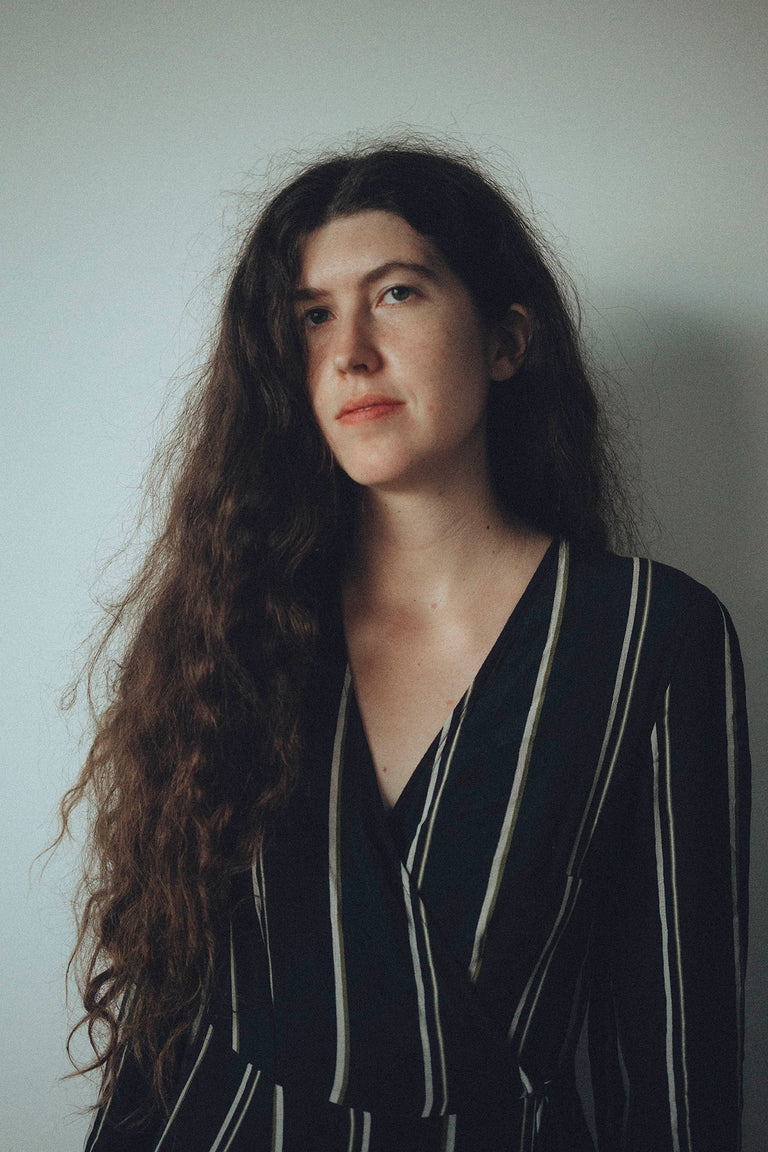While making desired lifestyle changes, like meeting a weight loss goal or making a commitment to a new way of eating, are reasons to celebrate, experiencing hair loss at the same time can bring on a feeling of dread. But before you hit the panic button, understand that weight loss and hair loss can be related.
"Our hair is very susceptible to changes in hormonal balance, stress levels and nutrient levels," Dr. Geri Williams said. "Losing weight can alter all three of these factors, so some degree of hair loss is certainly possible when losing weight."
Now that you know that hair wellness is definitely linked to diet, you can take a deep breath and relax a bit. But you can also take a closer look at the hair loss-dieting link — specifically what may cause it and what you can do to get thicker, fuller, healthier hair.
#include-related-slider#
How Dieting Causes Hair Loss
Subjecting your body to physical and emotional stress, like when you undergo sudden weight loss, can result in thinning hair. These types of diets can put stress on the thyroid gland, among other parts of the body, discouraging healthy hair growth. While genetic hair loss conditions like androgenic alopecia — also known as androgenetic alopecia, female pattern baldness and male pattern baldness — won't be impacted by these diets, a lack of essential vitamins may trigger other kinds of hair loss.
Dr. Williams said that extreme or crash dieting that causes you to overly restrict calories could cause medical conditions connected to hair loss. "If you take your diet to an extreme, you may cause a type of hair loss condition known as telogen effluvium," Dr. Williams said. "This can occur if you're not getting enough nutrients in your diet like zinc, protein and various fatty acids." Your body may react to not getting enough calories to support your body weight by reducing the nonessential energy expenditure of hair growth, leading you to experience hair loss.
Diets That May Cause Hair Loss
So what kind of dieting is the most likely to cause hair loss? According to certified nutritionist Jamie Hickey, anything extreme is likely to cause problems like hair loss. "I have seen this in a couple of my clients, and in each case, it was due to them not following the nutrition plan I made for them," she says. "They were so eager to lose weight that they put themselves into too much of a calorie deficit, and their bodies weren’t receiving adequate vitamins and minerals." While running a slight calorie deficit can be a healthy part of a proper diet and weight loss plan, it's essential that you make sure your body is getting adequate calories.
Hickey says that the biotin deficiency caused by not consuming nutrient-dense foods and enough protein can cause many negative side effects like hair loss, brittle nails and dry, unhealthy skin.
"This also happens when people restrict certain food groups," she said. "Keto is the perfect example of this."
A biotin deficiency can be easily addressed by taking a daily biotin vitamin to support hair health.
GRO Biotin Gummies are designed to nourish healthy hair. Each gummy contains 25% of your daily value of zinc, plus tons of other hair-healthy vitamins like biotin, folic acid, zinc, vitamins A, C, E and B-5, -6, -12.
Overly restricting your caloric intake via keto dieting can lead to deficiencies in essential vitamin and mineral components of hair regrowth, including iron deficiency and a lack of amino acids.
“Not all forms of dieting will lead to hair loss," said registered dietitian Trista Best. "This especially does not mean that healthy eating can cause hair loss. The issue with dieting and hair health is primarily due to accidental nutrient deficiencies. Dieting, especially fad dieting, tends to cut out large food groups which can lead to nutrient deficiencies and ultimately health concerns."
Dieters neglecting their protein needs and not maintaining a balanced diet with all the essential vitamins are particularly at risk for hair loss symptoms.
According to Best, "The particular nutrient of concern with dieting and hair loss is zinc. Zinc is a mineral necessary for human health. It is considered an essential trace mineral because it has to be taken in through external sources, e.g., food, since it is not made in the body. Zinc plays a role in cell development in the body, which is directly linked to hair, skin and nail health. Specifically, zinc's role in hair health is in the areas of growth and repair. This mineral works to protect hair tissue along with keeping the oil glands around the follicles operating efficiently.”
Without adequate zinc, dieters may experience damage to the hair follicles. If you're not getting enough zinc in your diet, try a daily gummy vitamin to make sure you're getting all the nutrients you need for healthy hair.
Read: Here's How Gut Health and Hair Loss Are Related
How To Diet Sustainably
So how can you manage dietary changes sustainably to prevent hair loss? First of all, it's important to seek out professional medical advice before beginning any new dietary plan. Consulting with an expert can help ensure you're eating a healthy diet. Ultimately, according to Dr. Geri Williams, "The best way to lose weight is to focus on eating a balanced variety of natural foods. Fad or crash diets are not advised."
Rather than taking on extreme calorie restriction, or limiting your access to certain foods, holistic nutritionist Heather Hanks says balance is key when seeking to lose weight sustainably while encouraging hair growth. "If you plan on dieting for weight loss, then make sure you do not drop your calorie intake too low," Hanks said. "You can still see results without 'dieting' or restricting calorie intake by eating whole foods."
Dietitian Nadia Chariff points out that you can easily obtain any essential vitamin or mineral your body needs while following a vegetarian or vegan diet. "Quality essential amino acid sources ... can improve hair and skin quality. Quality fat sources ... can do the same. For those struggling with hair and skin maladies, I tend to recommend biotin, vitamin E and zinc supplements."
To make sure you're not experiencing any nutritional deficiencies, both Chariff and Hanks suggest adding dietary supplements to your routine. Taking supplements is a great way to bridge any nutritional gaps and make sure you get the vitamin power your body needs. "You can also take a multivitamin to ensure you are not deficient in any nutrients that may prevent hair growth, including B vitamins, selenium, zinc, vitamins A and C, and iron," Hanks said.
VEGAMOUR's GRO+ Advanced Gummies are a great supplement to add to your daily routine, containing powerful doses of biotin, folic acid, zinc, and other beneficial vitamins and minerals. Besides getting biotin through foods, supplements can be a good way to up your biotin intake, especially if you're doing keto. One study suggests that dieters who follow the ketogenic diet have an increased biotin requirement.
Read: 6 Food Habits for Healthy Hair
Encouraging Regrowth
All of this is good advice, but what if you're already experiencing crash diet-related hair loss? Is there any way to reverse hair loss? Good news: If you find yourself experiencing hair loss after weight loss, there's no need to panic. As Dr. Geri Williams pointed out, "Telogen effluvium is reversible, and the hair you lose should start to grow back once you rebalance your diet again to get the proper nutrients you need." There are a few simple steps you can take to encourage regrowth:
- Mind your macros. Pay attention to what you're eating to make sure you get all the essential nutrients for hair health.
- Keep up those calories. Overly restricting can lead to hair loss — so make sure you're eating enough to support your body's energetic needs.
- Consult with a pro. Speak with a nutritionist or other medical professional if you're concerned about maintaining a healthy balance, or need support to lose weight sustainably.
Lastly, Chariff says that a healthy weight loss practice should keep your stress levels at a minimum, especially since stress can cause hair loss."It's imperative to establish some wellness and self-care rituals to reduce personal stress," Chariff says. "Taking walks, meditating, bubble baths by candlelight — whatever works to aid the parasympathetic nervous system."
Shop: Tia Booth's Favorite Vegamour Picks
#include-related-slider#
Hair Loss Caused by Weight Loss Takeaways
Remember, hair loss as a result of weight loss is not abnormal. The good news is that any hair loss you experience directly from dieting isn't permanent. Take these suggestions for diet, supplementation and encouraging regrowth seriously. And whatever solution you chose to boost your body and hair wellness, the most important thing is to be mindful and make sure you're meeting your body's needs. The best and most sustainable diet is the one that works best for you!
More From VEGAMOUR
- These 12 Illnesses Might Cause Hair Loss
- How Long Does It Take for Hair to Grow Back?
- How Much Is a Hair Transplant?
- Can Anxiety Cause Hair Loss?



















